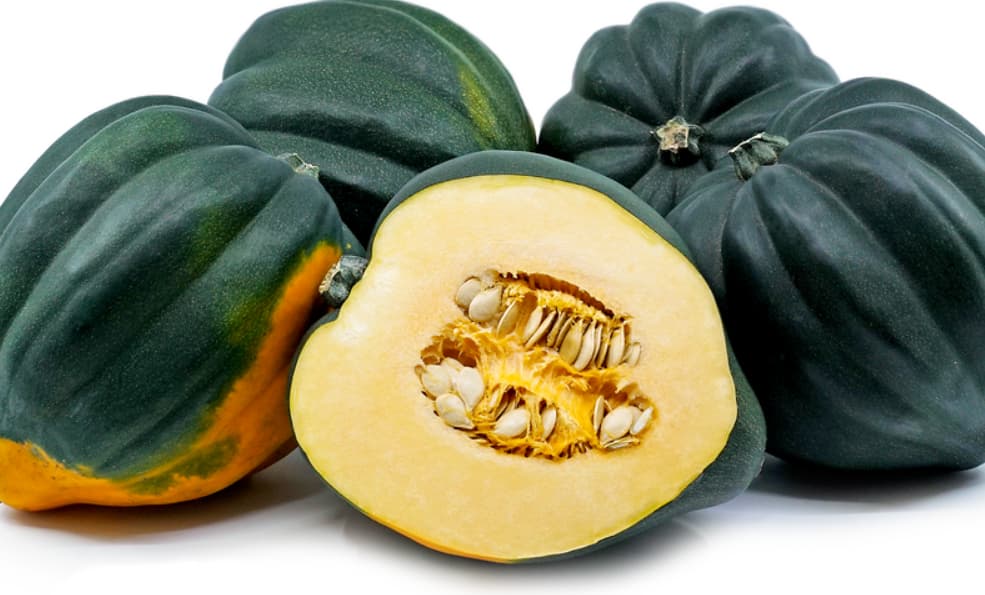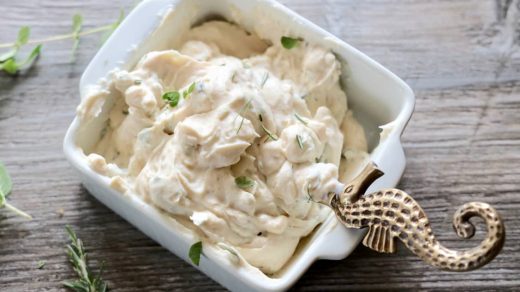Hey there, folks! Today, we’re going to talk about a tasty and healthy winter squash called acorn squash. This unique vegetable is named after its shape, which resembles an acorn.
It’s part of the Cucurbitaceae family, also known as the gourd family, and is related to other winter squashes like pumpkin, butternut squash, and spaghetti squash.
Acorn Squash Nutrition Facts: A Delicious and Nutritious Winter Squash

Acorn squash is not only delicious but also packed with nutrients that can benefit your health in many ways.
In this article, we’ll dive deep into the nutrition facts of acorn squash, its health benefits, how to select and store it, and some yummy ways to prepare and serve it. So, let’s get started!
What is Acorn Squash?
Before we jump into the nutrition facts, let’s take a closer look at what acorn squash is. This winter squash has a unique appearance, with a disc-like flat upper end and an angled, elongated lower part.
A fully grown acorn squash is usually about 4 inches across, 7 inches long, and weighs between 400 to 700 grams.
Acorn squash comes in different colors and sizes, including dark green, yellow, yellow-orange, and variegated. However, the most common type is the dark green variety.
The outer skin is hard and tough, with ridges that run lengthwise. Inside, the flesh is golden-yellow, similar to pumpkins.
Acorn Squash Nutrition Facts
Now that we know what acorn squash is let’s talk about its nutrition facts.
Here’s a table showing the nutrient values per 100 grams of raw acorn squash with skin:
| Principle | Nutrient Value | Percent of RDA |
|---|---|---|
| Energy | 40 Kcal | 2% |
| Carbohydrates | 10.42 g | 8% |
| Protein | 0.80 g | 1% |
| Total Fat | 0.10 g | <1% |
| Cholesterol | 0 mg | 0% |
| Dietary Fiber | 1.5 g | 4% |
| Vitamins | ||
| Folates | 17 μg | 4% |
| Niacin | 0.700 mg | 4% |
| Pantothenic acid | 0.400 mg | 8% |
| Pyridoxine | 0.154 mg | 12% |
| Riboflavin | 0.010 mg | <1% |
| Thiamin | 0.140 mg | 12% |
| Vitamin-A | 367 IU | 12% |
| Vitamin-C | 11 mg | 18% |
| Electrolytes | ||
| Sodium | 3 mg | <0.5% |
| Potassium | 347 mg | 7% |
| Minerals | ||
| Calcium | 33 mg | 3% |
| Iron | 0.70 mg | 9% |
| Magnesium | 32 mg | 8% |
| Manganese | 0.167 mg | 6% |
| Phosphorus | 36 mg | 5% |
| Selenium | 0.5 μg | <1% |
| Zinc | 0.13 mg | 1% |
| Phyto-nutrients | ||
| Carotene-β | 220 μg | — |
| Crypto-xanthin-β | 0 μg | — |
| Lutein-zeaxanthin | 38 μg | — |
As you can see from the table, acorn squash is relatively low in calories, with only 40 calories per 100 grams. It’s also free of saturated fats and cholesterol, making it a heart-healthy choice. Plus, the peel is a good source of dietary fiber, which is important for digestive health.
Health Benefits of Acorn Squash
Alright, now that we’ve covered the nutrition facts, let’s talk about the amazing health benefits of acorn squash.
Here are some of the top reasons why you should include this winter squash in your diet:
- Gluten-free: Acorn squash is naturally gluten-free, making it a great alternative for people with celiac disease or gluten sensitivity.
- Rich in Vitamin A: While acorn squash has less vitamin A than pumpkin, it still provides a decent amount – about 367 IU per 100 grams. Vitamin A is crucial for cell growth, development, and good vision.
- Antioxidants: Acorn squash contains flavonoid polyphenolic antioxidants like carotenes, lutein, and zeaxanthin. These compounds help fight harmful free radicals in the body, which can contribute to aging and various diseases.
- Vitamin C: Compared to pumpkin, acorn squash has more vitamin C, providing 18% of the recommended daily intake per 100 grams. Vitamin C is essential for collagen synthesis, iron absorption, and a healthy immune system.
- Folate: Acorn squash provides 17 μg or 4% of the recommended daily intake of folate per 100 grams. Folate is important for cell division, DNA synthesis, and preventing neural tube defects in newborns when consumed during early pregnancy.
- Heart-friendly: This winter squash is low in sodium but high in potassium, an important electrolyte that helps reduce blood pressure and heart rate by countering the effects of sodium.
- Other nutrients: Acorn squash also contains modest amounts of B-complex vitamins like pantothenic acid, riboflavin, and minerals like calcium, iron, manganese, phosphorus, and zinc.
Selection and Storage
Now that you know how nutritious acorn squash is, you might be wondering how to pick a good one and store it properly. Here are some tips:
- Selecting: When buying acorn squash, look for medium-sized fruits with intact stems. Avoid squashes with damage, cuts, punctures, spots, or bruises.
- Storing: Properly cured acorn squash can stay fresh for up to 3 months when stored in a cool, dry place, just like other winter squashes such as butternut and pumpkin. If you have cut sections, use them immediately or wrap them in plastic and store them in the refrigerator for 2-3 days.
Preparation and Serving Methods
Alright, now comes the fun part – preparing and serving acorn squash!
Here are some steps and tips:
- Washing: Rinse the acorn squash under cold water to remove any dirt or debris on the surface.
- Peeling: Since acorn squash has tough skin, you’ll need to peel it carefully using a sharp knife.
- Cutting: After peeling, cut the squash into small cubes, wedges, or halves, depending on how you plan to use it.
- Cooking: Acorn squash is very versatile and can be prepared in various ways, such as mashed, pureed, stuffed, grilled, or roasted.
Some Serving Tips:
- Add thin slices of fresh acorn squash to your salads for a crunchy texture and mild, sweet flavor.
- Make delicious snacks by dipping acorn squash blossoms in chickpea flour batter and frying them.
- Use acorn squash in baked goods like pies, casseroles, cakes, and puddings, just like you would with pumpkin.
- Blend pureed acorn squash with onion, carrot, and garlic to make a comforting soup.
- Cut the squash in half, scoop out the seeds, stuff it with cheese, mushrooms, and herbs, and bake it in the oven for a tasty main dish.
- Roast the seeds in the oven for a crunchy, nutritious snack.
Safety Suggestion:
Acorn squash is generally safe to consume for most people. Allergic reactions are rare, and it’s considered safe for pregnant women and infants.
However, if you have any concerns or pre-existing health conditions, it’s always best to consult with your healthcare provider before making significant changes to your diet.
Also Check:
Conclusion
Well, folks, there you have it – everything you need to know about the nutrition facts, health benefits, selection, storage, preparation, and serving methods of acorn squash!
This delicious and nutritious winter squash is a great addition to any diet, thanks to its low calorie content, high fiber, vitamins, minerals, and antioxidants.
Whether you enjoy it mashed, pureed, stuffed, grilled, or roasted, acorn squash is a versatile ingredient that can add flavor and nutrition to your meals.
Plus, with its long shelf life and easy preparation methods, it’s a convenient choice for busy weeknights or meal prep.
So next time you’re at the grocery store or farmers market, be sure to pick up some acorn squash and give it a try.
Your taste buds and your body will thank you!



